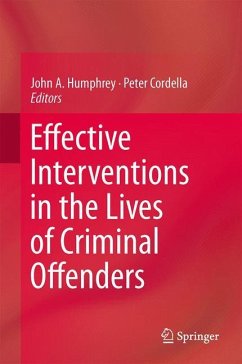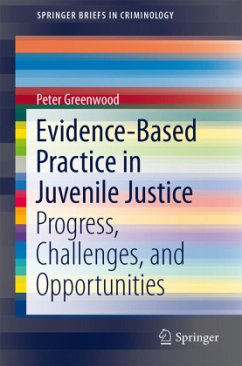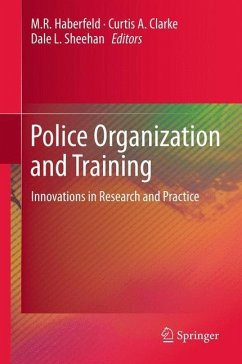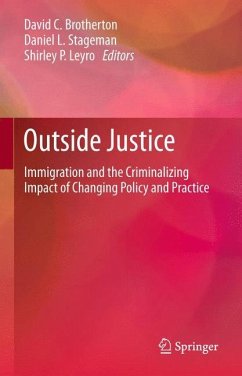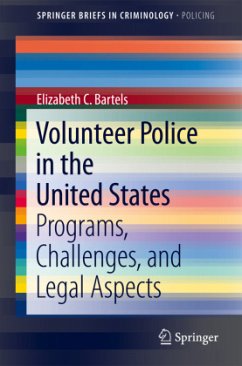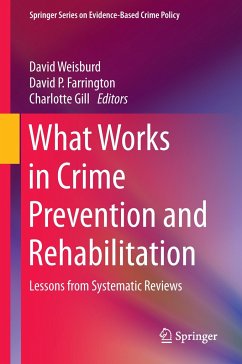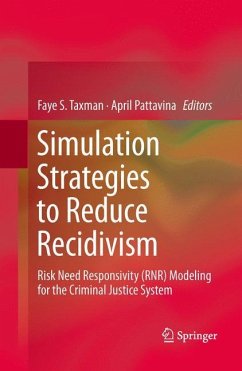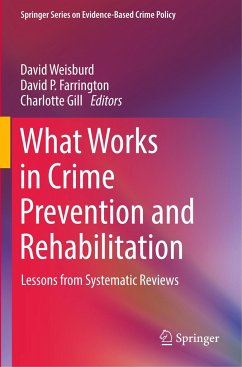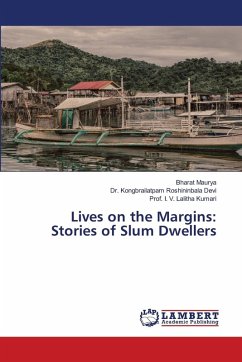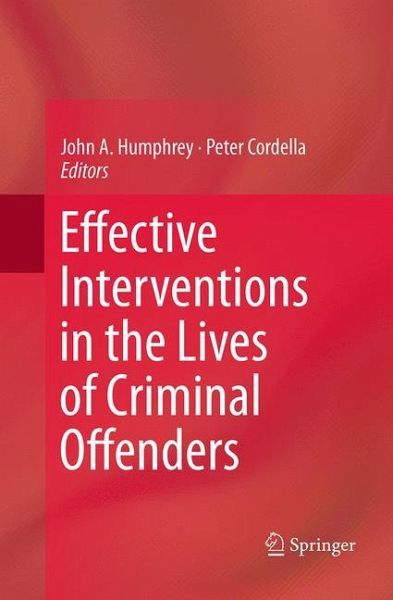
Effective Interventions in the Lives of Criminal Offenders
Versandkostenfrei!
Versandfertig in 6-10 Tagen
76,99 €
inkl. MwSt.

PAYBACK Punkte
38 °P sammeln!
This book provides the most current thinking on effective interventions in the lives of criminal offenders. Original articles by leading criminologists provide in-depth analyses of "turning points" in the desistance process experienced by criminal offenders. An understanding of the sources of turning points (or interventions) across the life course is vital to assessing their impact on criminal behavior. Three sources of interventions in criminal careers are identified in the literature: structural location, human agency and situated choice. Structural location refers to the social place occup...
This book provides the most current thinking on effective interventions in the lives of criminal offenders. Original articles by leading criminologists provide in-depth analyses of "turning points" in the desistance process experienced by criminal offenders. An understanding of the sources of turning points (or interventions) across the life course is vital to assessing their impact on criminal behavior. Three sources of interventions in criminal careers are identified in the literature: structural location, human agency and situated choice. Structural location refers to the social place occupied by an individual in the social structure: including marital and occupational status, education and income, and so on. Human agency means the active will of an individual to change his or her behavior, that is, the decision to stop engaging in criminal activities. In addition, situated choice coordinates the offender's willingness to end a life of crime with the social structural supports that increase the odds of criminal desistance.
This comprehensive book considers all three sources of turning points-structural location, human agency, and situated choice-across the life course of criminal offenders. The book also provides a section on cross-cultural perspectives on the effectiveness of interventions in the careers of criminal offenders.
The policy implications of each intervention are considered in individual chapters. In addition, the authors suggest a research agenda to further the understanding of the interplay among the key interventions across the life course. This book will be of interest to researchers studying criminology from a life course perspective, as well as crime prevention, and public policy.
This comprehensive book considers all three sources of turning points-structural location, human agency, and situated choice-across the life course of criminal offenders. The book also provides a section on cross-cultural perspectives on the effectiveness of interventions in the careers of criminal offenders.
The policy implications of each intervention are considered in individual chapters. In addition, the authors suggest a research agenda to further the understanding of the interplay among the key interventions across the life course. This book will be of interest to researchers studying criminology from a life course perspective, as well as crime prevention, and public policy.



